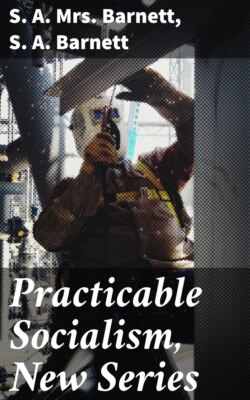Читать книгу Practicable Socialism, New Series - S. A. Barnett - Страница 8
На сайте Литреса книга снята с продажи.
II.—The Bishop and His Cathedral.
ОглавлениеThe Commissioners were evidently struck by the need of promoting “earnest and harmonious co-operation between the Bishop of the Diocese and the Cathedral Body”. They have endeavoured, as they reiterate, “to define and establish the relation in which the Bishop stands to the cathedral, and have made provision for assuring to him his legitimate position and influence”. When, however, reference is made to the statutes by which they carry out their intention, they seem very inadequate: the Bishop, for instance, is to “have the highest place of dignity whenever he is present”; “to preach whenever he may think fit”; “to hold visitation and exercise any function of his episcopal office whenever it may seem good”. He is also empowered to nominate a certain number of preachers, and is constituted the authority to give leave of absence to the Dean or Canons. The Dean, however, is left responsible for the services, in control of the officials, and at liberty to develop the use of the church.
It is difficult to see how, by such changes, the cathedral will become the spiritual centre from which the Bishop will work his diocese, and at the same time have harmonious relations with the Dean and Chapter. If he uses his full powers: gathers week by week diocesan organizations for worship, for encouragement, and for admonition; if he is often present at the services, if he arranges classes for the clergy, devotional meetings for church workers; if he institutes sermons and lectures on history or on the signs of the times—what is there left for the Dean and Canons to do? If he does not do such things, how can he make the cathedral the centre of spiritual life?
The Commission was evidently hampered in its recommendation by the presence of two dignitaries with somewhat conflicting duties. The simple solution is to make the Bishop the Dean. He would then have, as by right, all the powers it is proposed to confer upon him; he would exercise them at all times, without fear of any collision, and he would be in name and fact the sole authority in carrying out the statutes, and in controlling all subordinate officials. He would then be able to make the cathedral familiar to every soul in his diocese, associate its building and services with every organization for the common good—secular and religious—with choral societies, clubs, governing bodies, friendly societies, missionary associations, and such like. He would, in fact, make the cathedral the centre of spiritual life, and he would for ever abolish the petty rivalries and jealousies which grow up under divided control, and which bring such discredit on cathedral management. He would be master, and it is for want of a master that each official is now so disposed to magnify the petty privileges of his own office. There must be some one who is really big, that others may feel their proper place.
